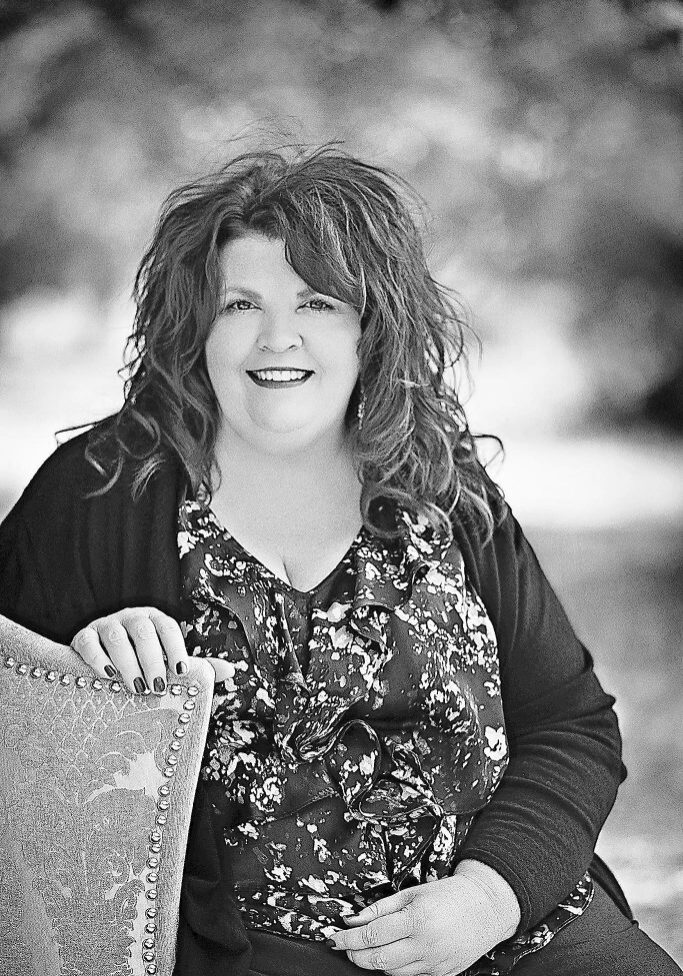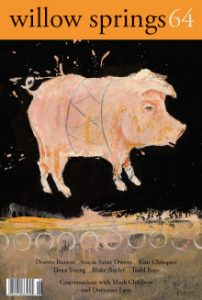
About Heather Brittian Bergstrom
Heather Brittain Bergstrom has won four awards from Narrative Magazine, most recently first place in the Fall 2010 Story Contest. She has also won fiction awards from The Chicago Tribune and The Atlantic Monthly, as well as other places. One of her stories was a notable in The Best American Short Stories 2010. Leslie Marmon Silko chose her story, “All Sorts of Hunger,” to win the Kore Press 2010 Short Fiction Award. She has published work in various literary journals and in the anthology Falling Backwards: Stories of Fathers and Daughters. She holds an MFA in Creative Writing.
Bergstrom was born and raised in Moses Lake, Washington. As an eastern Washington native, she was thrilled to have won the Willow Springs Fiction Prize. She currently lives in the Sacramento Valley, where she is putting the finishing touches on her first novel.
A Profile of the Author
Notes on “Slackwater”
Many contemporary Western short stories take place in motel rooms or on the road or in rented houses—as if the West has yet to be fully settled. My story is no exception. The protagonist in “Slackwater” returns to her hometown to visit her family, but winds up checking into a motel room instead of making contact. For three days, Jill longs for a sense of connection with her parents and with the dusty sage-covered land. In a last ditch effort to belong, she has an affair with the proprietor’s son, Clayton, who dreams of becoming a farmer. As a writer, I am interested in characters who grow up in farming towns but whose families do not own land. Does landlessness, especially in the wide open West, lead to restlessness? And how does this restlessness affect family and other relationships?
My protagonist used her body to get out of her hometown at a young age. I think the West (at least the Interior West) is a more isolating place for women and girls than for men and boys—who often enjoy hunting and fishing. This is a discrepancy I address in many of my stories. Much in the same way male characters partake in the mining, damming and intense agriculture that have partially destroyed the West, my female characters destroy their bodies.
I grew up in a small farming town in eastern Washington. The lake around which my hometown was built is at the tail end of an enormous reclamation project that begins at Grand Coulee Dam. I learned to swim in this slackwater lake and cooled off in irrigation canals. While growing up, my protagonist, Jill, liked to imagine the canals she swam in were actually the Columbia River. Though she supposedly hates the constant clicking of irrigation sprinklers, the sound helps her sleep better than she has in years. In the end, she forces herself to hear the river in the canal—and, in doing so, briefly reclaims her Western heritage.
I am intrigued by how landscape (place) shapes character. My often-wandering characters no longer seek furs or gold or large parcels of land, though their desires, in some ways, are just as unattainable: sleep, warmth, food, forgiveness, family, and clarity.
On a side note: after writing “Slackwater,” the proprietor’s son, Clayton, wouldn’t leave me be. He demanded I write his story, which is called “Farm-in-a-Day” and is available to read online at Narrative Magazine, Winter 2010.
Notes on Reading
I have been deeply influenced by Western writers like Richard Ford, Ray Carver, Jean Stafford, Louise Erdrich, Leslie Marmon Silko, and William Kittredge. Just as influential were Southern writers like Tennessee Williams, Eudora Welty, Flannery O’Connor, and more contemporary Southern poets like Dave Smith, C.D. Wright, Judy Jordan and Nicole Cooley. A sense of place is a key element in the work of all the above mentioned writers. Alice Munro is the god of short stories. Of her, I am in total awe. Also, Jhumpa Lahiri writes stunning short stories. James Baldwin’s “Sonny’s Blues,” however, is my absolute favorite short story. According to Baldwin, “For, while the tale of how we suffer, and how we are delighted, and how we may triumph is never new, it always must be heard. There isn’t any other tale to tell, it’s the only light we’ve got in all this darkness.”
To Kill A Mockingbird is perhaps the most brilliant contemporary novel. All that being said, the writers I read over and over are much older ones—Henry James, Thomas Hardy, and Leo Tolstoy. I am a sucker for thick old-fashioned novels, and these three men write the opposite sex with such compassion and depth. And then there is George Orwell. He’s not so good with women but I absolutely love him—his essays and his novels.
A contemporary novel I have recently enjoyed: The Last Station by Jay Parini. Moral Disorder by Margaret Atwood is a fantastic new story collection. And as for books on the craft of short story writing, I recommend Narrative Design by Madison Smartt Bell.


